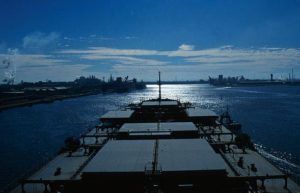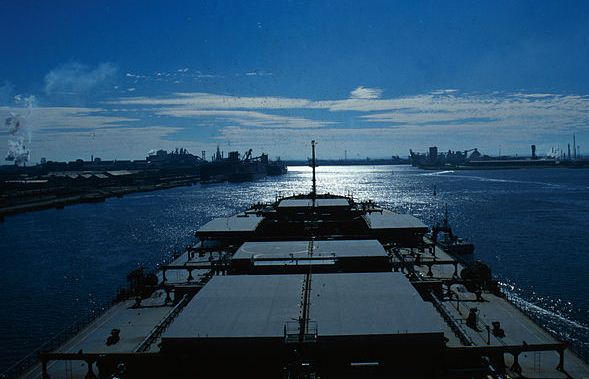 The International Chamber of Shipping (ICS) said that with the entry into force of the International Maritime Organization (IMO) Ballast Water Management (BWM) Convention last September 8, the sector may have to invest about US$100 billion in new treatment systems.
The International Chamber of Shipping (ICS) said that with the entry into force of the International Maritime Organization (IMO) Ballast Water Management (BWM) Convention last September 8, the sector may have to invest about US$100 billion in new treatment systems.
The treaty had earlier been estimated to unlock an unprecedented private sector investment of about $30 billion over the next few years.
“The industry may collectively need to spend around 100 billion U.S. dollars in order to install the new ballast water treatment systems that will be required by law,” said Esben Poulsson, ICS chairman.
This means, he added, that ships have to make sure that they invest in the right equipment, standards, and specifications so as not to make any costly mistakes.
“We need to ensure, so far as practicable, that the systems installed on ships will indeed be fit for purpose in all known operating conditions worldwide,” said Poulsson in a statement.
He said ICS is advising shipping companies to “make it clear to equipment manufacturers they will only consider fitting treatment systems which have been certified in accordance with the revised IMO type-approval standards adopted in 2016, even though this is not yet a mandatory requirement.”
He further cited the need for shipowners, equipment manufacturers, and governments to cooperate to ensure that proper implementation of this significant new regulatory regime will deliver maximum environment benefit.
ICS has welcomed the important decision made by IMO in July to adjust the implementation dates of the convention, so that existing ships (i.e., ships constructed before September 8) will not be required to install treatment systems until the date of their first International Oil Pollution Prevention renewal survey after September 8, 2019.
“We acknowledge the pragmatic approach to implementation taken by IMO Member States who accepted the arguments made by ICS and other industry associations that there is little logic, from an environmental protection standpoint, in requiring thousands of ships to comply until they can be fitted with systems that have been approved under the more stringent standards,” explained Poulsson.
“Shipowners must make full use of this additional time to identify and invest in far more robust technology to the benefit of the environment,” Poulsson said.
“And in view of the significant concessions that IMO has now made in response to the industry’s representations, shipping companies should not anticipate any further relaxation to the implementation schedule.”
ICS believes that as a result of the industry’s intensive efforts to explain its implementation challenges to regulators, shipowners will hopefully now have the clarity needed to get on with the job.
ICS was previously ambivalent about encouraging flag states to ratify the BWM Convention in advance of some serious implementation issues being fully resolved. But now that the convention has gone into force, and in recognition of the actions agreed by IMO, ICS is now encouraging all IMO member states to ratify as soon as possible.
The BWM Convention is the international treaty requiring ships to manage their ballast water to help stop the spread of invasive aquatic species across the globe.
With the accession of Jamaica and Malta as the latest states to sign up to the Convention, the treaty now has a total of 65 signatories representing 73.92% of the world’s merchant fleet tonnage.
The BWM Convention was adopted in 2004 by the IMO, the United Nations specialized agency responsible for developing global standards for ship safety and security and for protecting the marine environment and the atmosphere from any harmful impacts of shipping.
Photo: CSIRO





